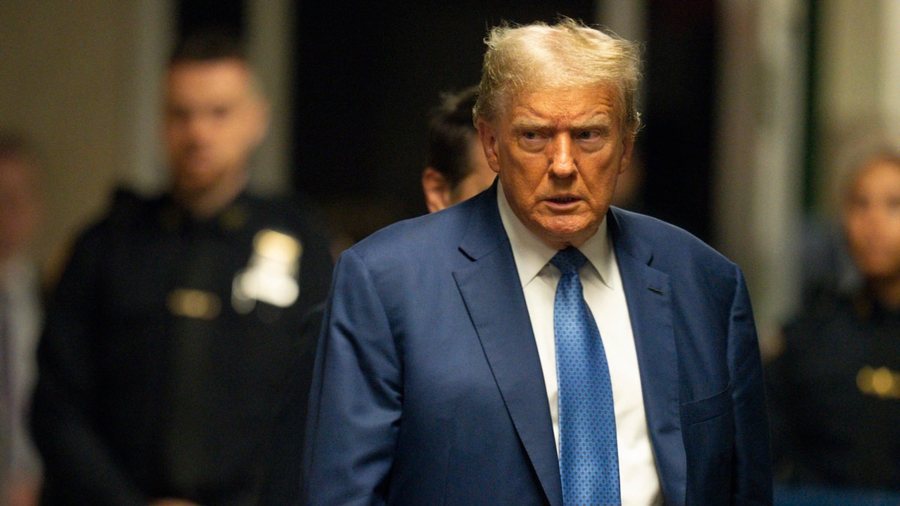
President-elect Donald Trump has been denied a request to indefinitely delay sentencing in a lawsuit over payments made to a woman in exchange for her silence ahead of the 2016 election, which was scheduled for this week.
His legal team had asked that the sentence not be handed down while he appeals a ruling that was upheld in an earlier ruling that looks set to make him the first president to take office while convicted of a felony.
Manhattan Judge Juan M. Merchan ordered the sentencing to take place on Friday as scheduled, rejecting arguments from Mr. Trump's lawyers, who had asked for a pause while they approach a state appeals court in an attempt to overturn the decision to keep the previous one in force.
Mr Trump could still ask the appeals court to step in and order a ban or pause. Otherwise, he will receive the sentence just over a week before he is inaugurated for a second term.
Mr. Trump's lawyers have told Judge Merchan that if the hearing is held, he will appear by video rather than in person. The judge had allowed this option in light of the presidential transition process.
Judge Merchan denied President-elect Trump's request to vacate the May 30 decision, due to his imminent return to the White House. Mr. Trump's lawyers said they would also appeal a preliminary ruling in which the judge refused to dismiss the case on presidential immunity grounds.
In his ruling last week, the judge signaled he was unlikely to hand down any punishment for the Republican president-elect following his unprecedented guilty verdict on 34 criminal charges related to falsifying business records.
President-elect Trump has said "it would be the end of the Presidency as we know it" if the decision is allowed to stand.
His lawyers argued Monday that their appeal to the Appellate Division of the New York State Supreme Court should trigger what is known as an automatic stay, or stay of proceedings. If that doesn't happen, they said, Judge Merchan himself must act and stop Friday's sentencing.
"Today, President Trump's legal team took steps to stop the wrongful conviction in the Manhattan Prosecutor's Witch Hunt," President-elect Trump's spokesman Steven Cheung said earlier. "The Supreme Court's landmark decision on immunity, the New York state constitution, and established legal precedent require that this frivolous device be struck down immediately."
A message seeking comment was left for the Manhattan district attorney's office, which led the investigation.
While Mr. Trump argued that presidential immunity and his looming second term required the decision to be overturned, Judge Merchan wrote in his Jan. 3 ruling that only "concluding this matter" by convicting Mr. Trump would serve the interests of justice.
The judge wrote that sentencing President-elect Trump to what is known as an "unconditional discharge" — that is, closing the case without jail time, fines, or any conditions — "appears to be the most viable solution."
The allegations against Mr Trump included a scheme to cover up the payment to silence porn actress Stormy Daniels, in the final weeks of Mr Trump's 2016 campaign, to avoid publishing allegations that he had had sex with her years earlier. . He says her story is false and that she has done nothing wrong.
The case centered on how Mr Trump recorded the reimbursement of his then-personal lawyer Michael Cohen, who had made the payment to Ms Daniels. A conviction created the possibility of punishment ranging from a fine, a suspended sentence, or up to four years in prison.
Mr. Cohen, a key prosecution witness who had previously called for Mr. Trump to be jailed, said that "based on all the intervening circumstances" Judge Merchan's decision to sentence Mr. Trump without a sentence "is reasonable and suitable".
President-elect Trump's sentencing was originally scheduled for last July 11 and then postponed twice at the request of the defense. After Mr. Trump's election on Nov. 5, Judge Merchan adjourned sentencing again so the defense and prosecution could weigh in on the future of the case. VOA (A2 Televizion)











